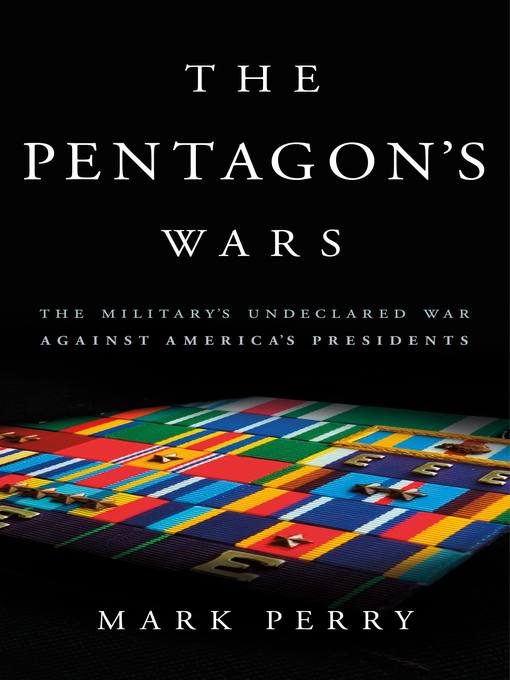
The Pentagon's Wars
The Military's Undeclared War Against America's Presidents
- اطلاعات
- نقد و بررسی
- دیدگاه کاربران
نقد و بررسی

August 15, 2017
Why have we been in Afghanistan twice as long as the Soviets? Why did Saddam Hussein reign for a dozen more years after defeat in the Persian Gulf War? This study of the clash of military and civilian cultures goes a long way toward answering such questions.By many reckonings, the United States has not been at peace since the atomic bombs fell on Japan in 1945. There is good reason for that: politicians like war, and they have been able to co-opt plenty of military people to press their cases, even as professional soldiers recognize war as a last resort. By freelance military affairs journalist Perry's (The Most Dangerous Man in America: The Making of Douglas MacArthur, 2014, etc.) account, in the last three decades especially, "the brilliance of our battlefield leaders has not been matched by those in Washington who are responsible for making certain that our soldiers, sailors, and airmen (and women) not only have what they need to win, but are backed by strong leaders who speak their minds." It is this last matter that occupies much of the book, for the military is made up of two classes of officers: politicians who often migrate into the enemy (read: administrative or legislative) camp and actual combat leaders who have little use for politicians but still follow their orders. The author observes that the politicians among the soldiers, usually at the very apex of leadership, rarely say no to their civilian bosses: only Colin Powell did, and then only over the matter of gays in the military, which was less problematic of itself than as a symptom of Bill Clinton's "rookie mistake" tendency to tell the Pentagon what to do. The overarching result is that field officers often actively conspire to frustrate political ambitions, particularly to resist directives at nation-building, which is not the military's mission. A book that does much to explain quirks of foreign policy, providing a military context for them--and one that makes one wonder who's really in charge.
COPYRIGHT(2017) Kirkus Reviews, ALL RIGHTS RESERVED.

October 15, 2017
American military leaders often differ from political leaders in matters of policy, and the result can be contentious discussions, both in public and private. Foreign affairs analyst Perry (The Most Dangerous Man in America) here brings forward some post-Cold War arguments and incorporates the effects of both the concept of the Revolution in Military Affairs and the 1986 Goldwater-Nichols Act on the administrations between Ronald Reagan and Barack Obama. Rather than focusing on politico-military differences of opinion, the author spends much of the book dissecting personality conflicts among generals, particularly during the Iraq War. Secretary of Defense Donald Rumsfeld dominates the chapter on Iraq, while Bill Clinton's relationship with Gen. John Shalikashvili is a central theme in Bosnia. The role of analysis and policy is not absent but tends to be shown through interpersonal relations, rather than complex discussions. In the end, Perry questions the will and ability of modern military leaders to speak hard truths to their political overseers. VERDICT A dense yet well-researched and detailed insider look at the making of military policy under six presidents that will be of most interest to military professionals.--Edwin Burgess, Kansas City, KS
Copyright 2017 Library Journal, LLC Used with permission.




دیدگاه کاربران